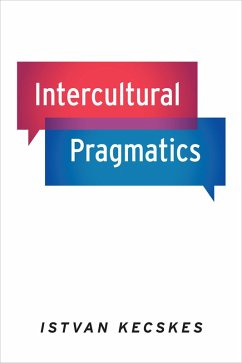Intercultural Pragmatics studies how language systems are used in social encounters between speakers who have different first languages and cultures, yet communicate in a common language. The field first emerged in the early 21st century, joining two seemingly antagonistic approaches to pragmatics research: the cognitive-philosophical approach, which considers intention as an
a priori mental state of the speaker, and the sociocultural-interactional approach, which considers it as a
post factum construct created by both speaker and hearer though conversation. Istvan Kecskes, an early proponent of intercultural pragmatics, was among the first to propose merging the two to form the socio-cognitive approach now core to the field. In
Intercultural Pragmatics, the first book on the subject, Kecskes establishes the foundations of the field, boldly combining the pragmatic view of cooperation with the cognitive view of egocentrism in order to incorporate emerging features of communication. He argues that people cooperate by generating and formulating intention that is relevant to the given actual situational context. At the same time, however, because of their egocentrism they activate the most salient information to their attention in the construction and comprehension of utterances. Within this approach, interlocutors are considered as social beings searching for meaning with individual minds embedded in a socio-cultural collectivity, and intention is a cooperation-directed practice that is governed by relevance which depends on actual situational experience. Intercultural pragmatics is a rapidly-growing field, and the only subfield of pragmatics to incorporate features of intercultural interaction into mainstream pragmatics. This volume offers both a valuable synthesis of current research and a new way to think about pragmatics.
Dieser Download kann aus rechtlichen Gründen nur mit Rechnungsadresse in A, B, BG, CY, CZ, D, DK, EW, E, FIN, F, GR, HR, H, IRL, I, LT, L, LR, M, NL, PL, P, R, S, SLO, SK ausgeliefert werden.









